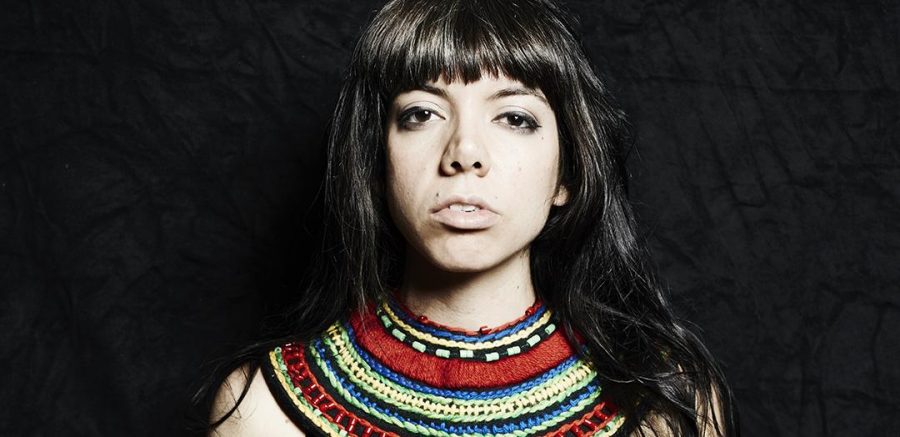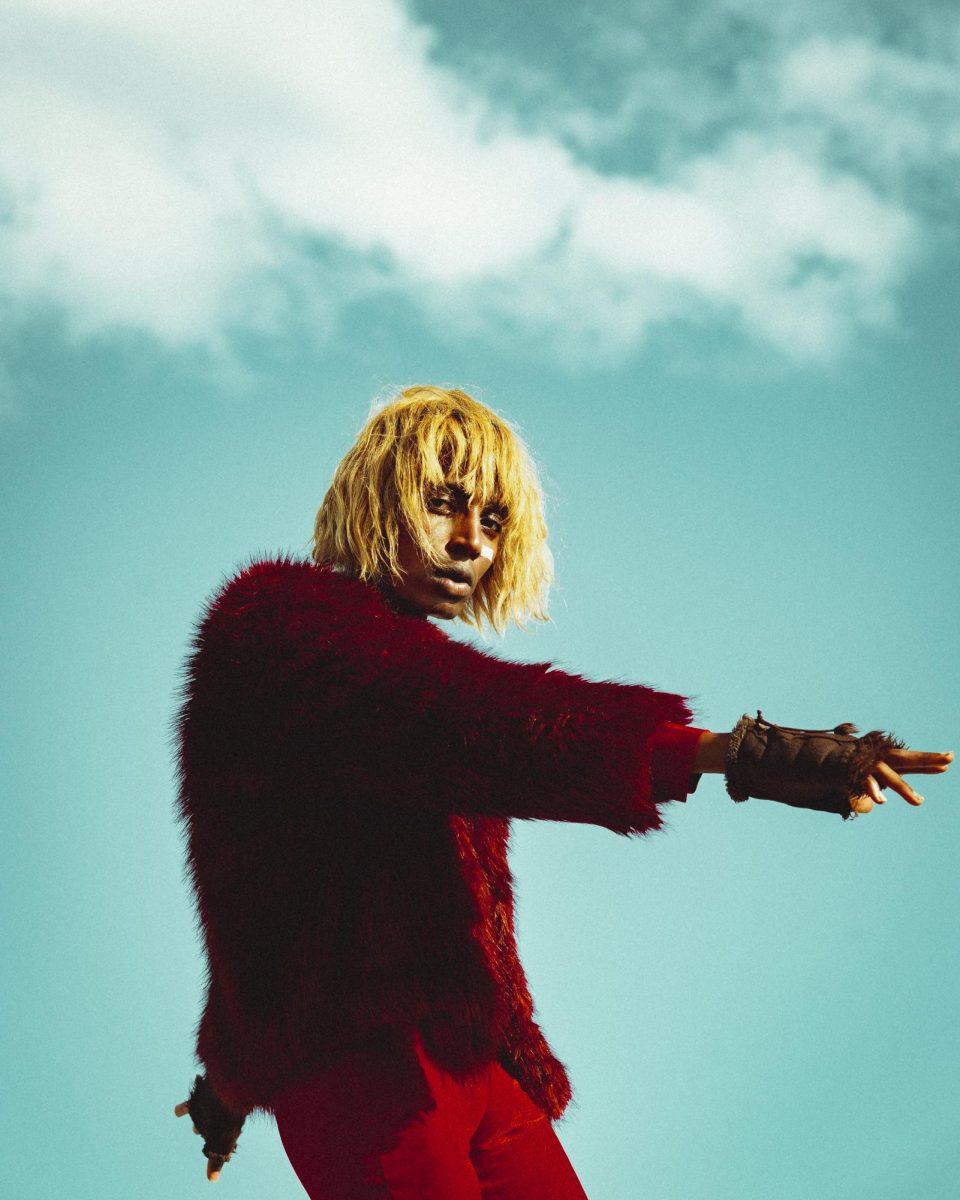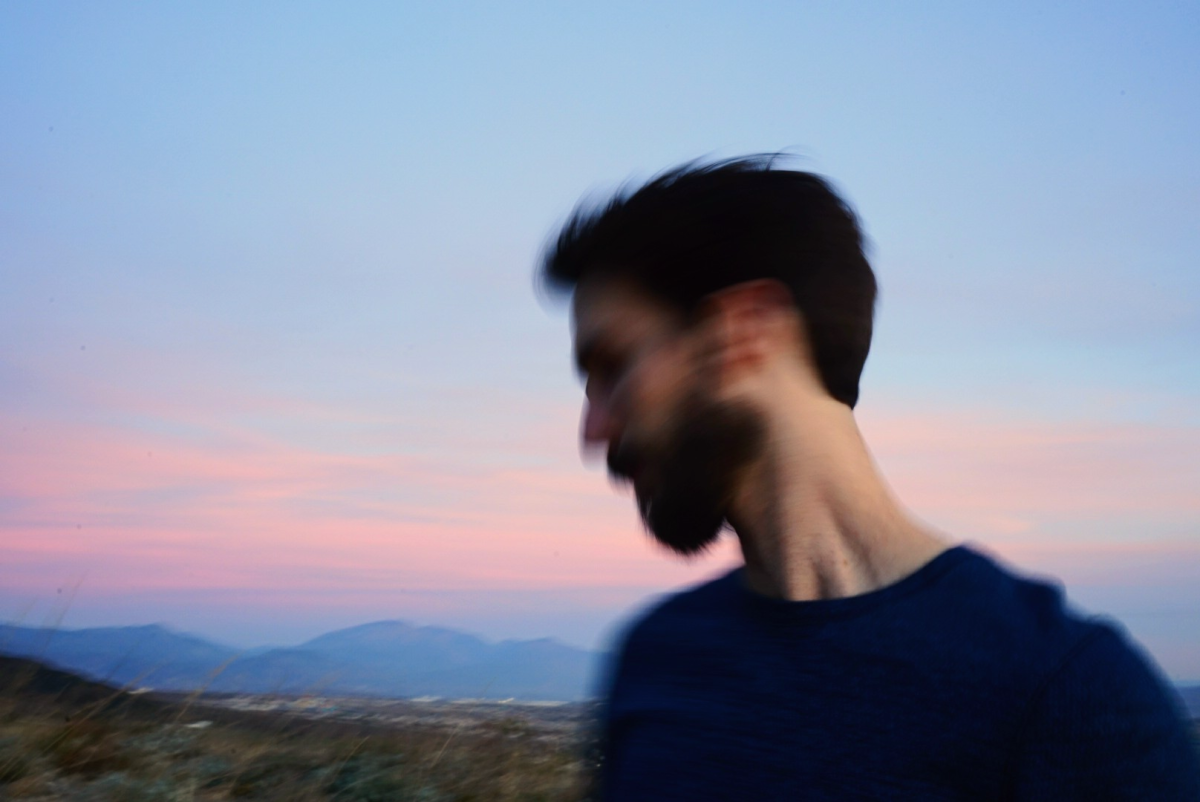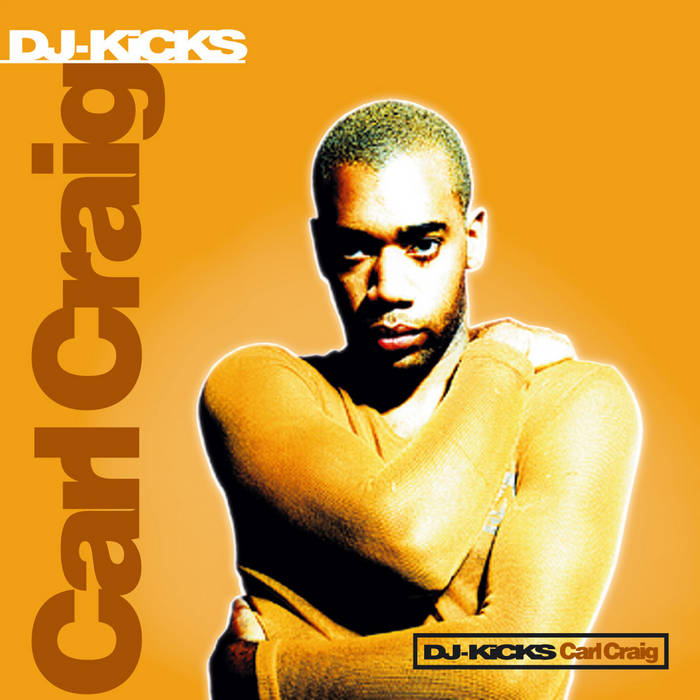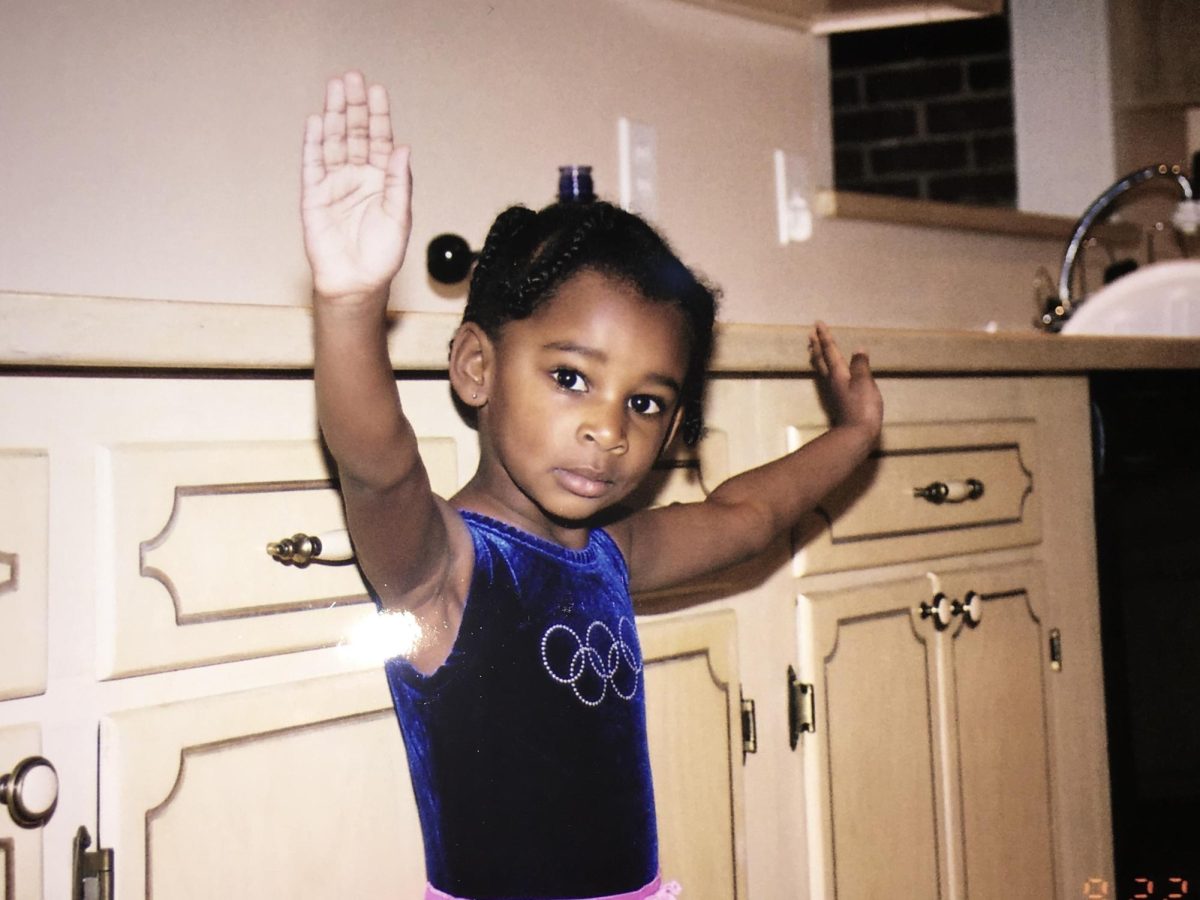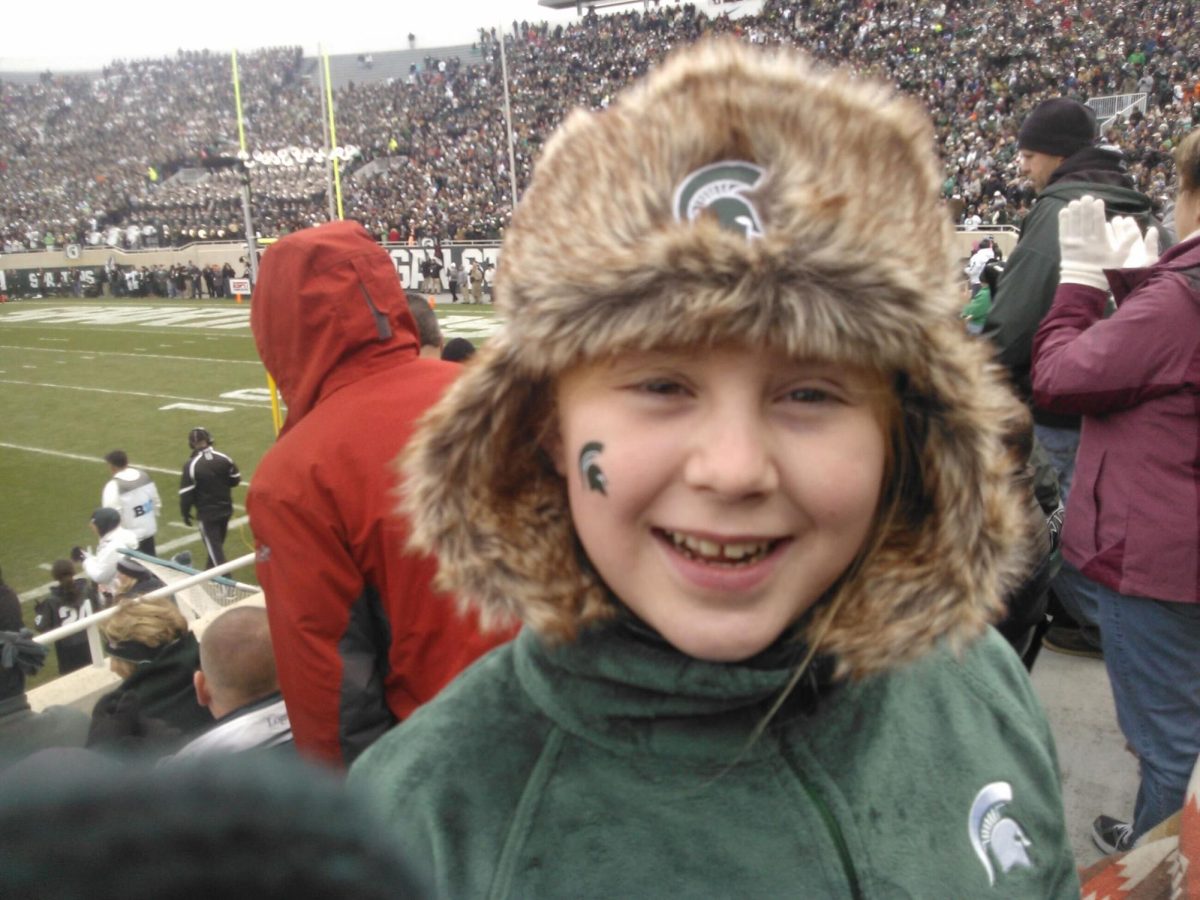I first discovered Hurray for the Riff Raff when a friend played me “Blue Ridge Mountain” on their radio show. I was hooked. Soon after, I discovered songs like “The Body Electric” and “Born to Win (Part One)” that would pick me up and put me in a different place.
Now with a new album just on the horizon, Hurray for the Riff Raff continues to push forward as a leading, musical voice in our ever-changing world. I sat down with the band’s lead singer and songwriter, Alynda Lee Segarra, to talk more about their upcoming LP, the songs she’d like Donald Trump to hear and what it means to stay strong behind your own beliefs.
You’re on the road again now, and you have a new album that’s coming out early 2017, right?
Yes, I do! I’m really excited. It’s called “The Navigator,” and we’re gonna be playing a lot of new songs any time we tour between now and then. We’re starting to roll ‘em out and it’s really exciting.
What’s it like to see that audience reaction when you’re playing new songs?
I was a little afraid because it sounds different, definitely, than “Small Town Heroes.” We’re straying from the country sound, straying from the Americana sound. But I think it’s also like a natural progression. I was a little afraid of, you know… Not that I need everyone to like it, just that I didn’t want to deal with the awkwardness at shows. [Laughs] So far, people have reacted really well. When we were in England, everyone seemed to love the new songs, so that’s really exciting.
I saw that you said to Mojo magazine that you’re trying to “break out of the Americana box.” Do you think people are starting to take notice of that, too?
I guess I’m not really sure yet, you know? People do ask questions about it, but I don’t know. I think that once the album’s out, people will see the big picture, and it’ll make sense to them.
What are we gonna be hearing on “The Navigator” that we haven’t heard on “Small Town Heroes”?
I’m bringing some more rhythmic concepts into it. I’ve been listening to a lot of different kinds of Puerto Rican music, whether it’s like folk, bomba and plena… which [is] where my family is from. And also listening to a lot of Fania Records recordings of Héctor Lavoe and Willie Colón, and a lot of other amazing artists that were on that label.
And also listening to a lot of Brazilian music, a lot of Jorge Ben and a lot of Os Mutantes.
So, I really wanted to bring in these rhythms with folk rock, or rock ‘n’ roll sound. I’ve been thinking a lot about New York City. The album’s a lot about New York. It’s a lot about what happens when music, from all these different parts of the world, lives together. So, I think it’s a natural progression for us, personally.
I’m from Brazil, actually.
Oh, wow!
So I grew up in a bilingual household. My parents would speak to me in Portuguese, but at school, I’d learn to speak English. Even today, when we’re out in public, they’ll speak to me in Portuguese and I’ll respond in English.
God, Portuguese is a beautiful language.
Yeah… I’m horrible at it. But when I can speak it, it’s kind of nice to have that sense of pride and reflect on your roots.
Totally, yes. That was a huge part of this album for me. It was really emotionally challenging for me. And I’m terrible at speaking Spanish – my family didn’t really teach me Spanish when I was little – but I’ve been trying really hard, taking classes and stuff. Because it is a thing of pride, and it connects you to your ancestors and that culture so specifically when you can communicate in it.
Do you think it’s important for an artist to stay true to their roots?
I think, especially in this time period… I don’t believe that we have to play music or make art that is like the mainstream idea – or the stereotypical idea – of what, for example, a Latin person should make. But I do think that it’s really important to redefine what it is to be like a Latin person, what you’re supposed to do. I just started feeling like, with the political climate and the way it is, it was really important for me to be really open about how I’m proud of being Puerto Rican.
There’s a lot that’s going on with Latin people right now. They’re being demonized by Donald Trump and the Republican party – immigrants in general. And also Puerto Rico is going through a huge crisis right now.
So, it was really important to me. I feel more like myself than ever. It’s been a healing, beautiful process.
I noticed on your Twitter that you have this wonderful juxtaposition of “Hey, here’s an interview I did! Hey, I did this show last night and it was great!” But then you also have tweets like, “Hey, someone was shot and killed by police yesterday.”
That’s why we only have six thousand followers. [Laughs] People were like, “Actually… nah.” [Laughs]
It’s interesting to see an artist take it on – and I hate saying, “they’re getting political” – but do you ever get worried when you post something and think, “Am I pushing someone away?”
No, I mean… this is just the way I am. When I first started writing songs from the get-go, I wanted to write songs that were about political issues. I wanted to incorporate feminism in my songs. That’s the way I’ve always been, and I always felt like [I’ll] be honest from the beginning so nobody gets surprised. And still sometimes people act surprised. And I’m like, “That’s weird, you should’ve looked at my Instagram.” [Laughs]
I just feel like that’s what I do, that’s who I am. And if people don’t like it, they really don’t have to listen to me. I’d rather they not – I think it’s part of my journey as an artist.
But most of all, I wanna make good art. I wanna write good songs. I don’t want it to ever take over. Like, “I’m writing the songs simply for the message and the melodies” isn’t that good, you know?
I really hate arguments. I’m really not a debating person. I don’t like getting into arguments online. I’m not one of those people. So, sometimes I’ll post stuff, because I think it’s important and I think it’s interesting, then I’ll delete [my app] off my phone for a couple days. I’ll let all the trolls have their day… [Laughs] Then come back when they’re tired.
There’s another artist I follow closely that, a few months ago, played at a [Bernie] Sanders rally. So, he had a lot of fans saying, “This is great! Glad you’re getting this exposure.” But also had the token few…
Totally. The egg people. [Laughs]
The egg people?
Like on Twitter – they don’t even have a picture. It’s the egg still.
[Laughs] That’s my first time hearing that. But yeah, those people are saying, “Why aren’t you playing at a rally for Trump?”
Oh my god.
And – I know I keep coming back to this phrase – “Why are you getting political?” What do you say to musicians who are going through that?
It’s not new! It just blows my mind. Like, “Are you serious? Have you ever heard of a band called The Beatles?” [Laughs] This isn’t a new thing, that musicians happen to have an opinion about what’s going on in the world, and they want to write music that either inspires people or reflects the time they’re in. Nina Simone did it. The list goes on and on… I feel like we really got used to the early 2000s.
I grew up in the Backstreet Boys time period, and I think people just forgot about the past and forgot about real artists who have opinions. There’s been a change recently in mainstream music, where real artistry is coming back. People are just gonna have to deal with it.
I think any artist that’s going through that right now, they just have to look back on, what I call, the ancestors. Look back on the artists you love who are now celebrated, but in their own time, they were totally persecuted. And now they’re remembered as being so brilliant and brave.
It’s the same thing for athletes. Everyone’s loving Muhammad Ali, but then they’ll get down on athletes for standing up for Black Lives Matter. How can you do that in the same sentence?
If you could play a song for Donald Trump…
[Laughs] Oh, man…
What song would that be?
Of my own?
How about one of your own and also one of anyone else?
Oh, that’s so good.
I guess I would play “The Body Electric” for him… well, no! Never mind. Well, I would play “The Body Electric,” I guess. But there’s a new one that I wrote called “Rican Beach.”
It’s about a fictional place that I made up called Rican Beach. It has a lot to do about gentrification and demonizing people of color. And what’s going on in Puerto Rico. But it is this fictional place, and there are some lyrics I’d love for him to hear.
[Another] song is by a man called Willie Dunn. He’s a Native American artist from the ‘60s, and he wrote a song called “I Pity the Country.” We’ve been playing it before we play – it’s our walk-on song. And the lyrics are like, “I pity the country/I pity the state/And the mind of the man/Who thrives on hate.”
And then the other one is “Mississippi Goddamn” by Nina Simone. I’d just love to watch his face react. [Laughs]
When someone’s listening to your music, how do you think they can best act as an agent of change? To take your music and apply it to the real world.
Right now, the majority of people that I see at my shows are, seemingly, white people. And I think something that happens a lot is that people connect to artists of color and they love their art, and they love what these people create. But then, when it comes to the everyday life of dealing with groups like Black Lives Matter or other activist groups, they have a really hard time relating to them.
And I would just ask if they love my music, and they’re listening to what I’m saying, [that] when they interact with these people that are way more outspoken than I am – and who are actually on the ground doing a lot of really important work that is gonna be uncomfortable for people – I would just ask them to listen. Just listen. Just wait it out and just try to hear where these people are coming from. That’s a major thing. It’s about hearing someone else’s experience and being like, “That’s not my experience. I don’t know what that’s like. But I’m not gonna tell you that’s not true because I didn’t experience it.”
I think that’s a major thing we can do right now, is listen to these people who [have] been dealing with this forever. It might be totally new to us. We might’ve never thought about it or heard about it, but that’s the important time period we’re in.
I grew up over on the west side of the state in one of the most conservative counties in the entire state of Michigan.
So, I went to a school that was equally conservative. Shortly after I left high school and went to college, and all my friends started doing the same thing, people started coming out as queer, or that they’ve start going under the process to find their true gender identity.
And some of them became musicians, on top of that, and started to express themselves musically – even after having grown up with parents, and a community, who were against that. So for all those musicians out there who are growing up in Zeeland, Mich., or “Small Town, U.S.A.,” where their environment isn’t fostering who they want to be… what would you say to them if you could give a direct message?
I would say there are times in your life when surviving – if all you can do is just survive – if all you can do is be like, “I just gotta wait this out, and in five years I will be somewhat free.”
It’s this waiting game. And it’s like a survival game where there are gonna be people out there who are gonna look at you and be like, “You’re not crazy!” But when you’re young and when you’re trapped, and when you’re surrounded by these people who are actually insane – but they all agree – you can feel like… I think at that age, it’s really a matter of don’t die. Do whatever you can [to] not die.
It could sound overdramatic… that’s okay. If your focus is “I gotta get through this, and then once I get through this and I get to a place where I’m safe, or where I’m supported by a community, then I can start achieving my dreams.” Don’t be hard on yourself about that. Sometimes you have just have to protect your physical body. And then, you can flourish.
But I would also say that the internet is a really amazing tool right now, and there are ways to give yourself that support online. In my life, I have an Instagram and I purposely follow other Latin feminists, because sometimes I need that [when] living in Nashville. Sometimes I just really need to see that every day. I don’t experience enough in my everyday life. Stuff like that can really help you.
I hope it’s inspirational enough to just be like, don’t die! People out in the world need you. And we love you. And we’re here.
Hurray for the Riff Raff’s upcoming LP, “The Navigator,” is due out March 2017 on ATO Records.
Follow WDBM’s Progressive Torch and Twang on Twitter for show updates and more Americana news.
Portions of this interview were edited for clarity and length.



